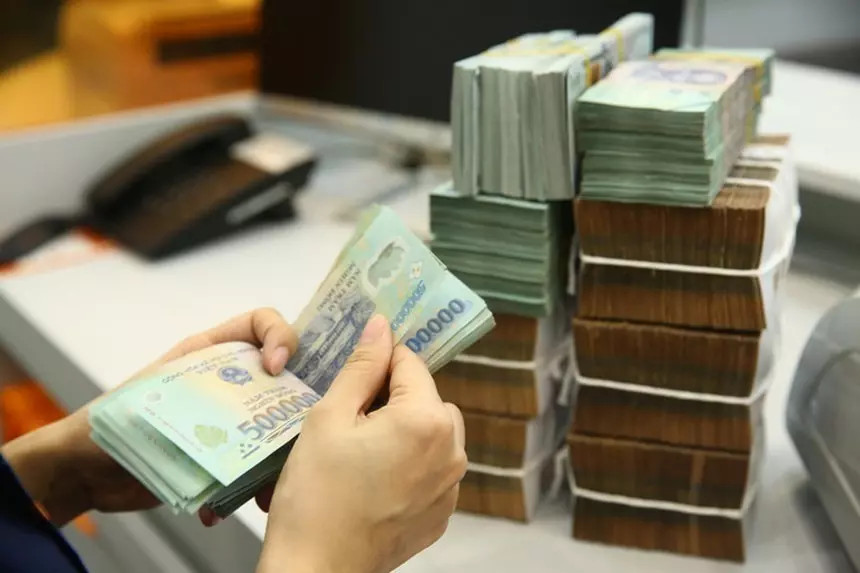
Worry about inflation
While regulatory interest rates remain unchanged, commercial banks have increased deposit interest rates. The analysts believe that lending interest rates will increase in the future despite the efforts to curb interest rates.
The predictions released earlier this year said the deposit interest rates would increase by 0.3-0.5 percent in 2022. But in reality, by mid-June 2022, many banks raised the interest rates by 0.6-0.8 percent.
Vietcombank Securities (VCBS) recently predicted that deposit interest rates may increase by 1-1.5 percent in the whole year 2022. This means that lending interest rates are under pressure to increase, though the increases would come later.
Le Xuan Nghia, a respected economist, also thinks the pressure to increase deposit interest rates will be harder from now to the end of the year. As people’s expected inflation rate is high this year, commercial banks would have to offer high deposit interest rates to be able to attract capital.
The central bank itself has warned about the impact of high inflation on interest rates. SBV Deputy Governor Dao Minh Tu at the press briefing on June 15 also said high inflation risk exists.
Vietnam’s inflation rate is still at 2.25 percent as of May 20, a low level. However, as Vietnam’s economy has high openness, it will import inflation. A number of Vietnam’s major partners are witnessing 30-year high inflation.
The inflation rate of the US, for example, had reached 8.6 percent as of the end of May. The figures are 9 percent in the UK, 7.04 percent in Germany, 5.4 percent in South Korea, 7.1 percent in Thailand, 5.4 percent in the Philippines and 3.6 percent in Indonesia.
On June 15, the US FED raised the prime interest rate to 0.75 percent per annum. Meanwhile, experts have predicted the interest rate may climb to 2.75-3 percent by the end of the year. If this occurs, the interest rates and dong/dollar exchange rates in Vietnam will be affected.
Lending interest rates
According to Pham Chi Quang, deputy director of SBV’s Monetary Policy Department, thanks to success in curbing inflation, the lending interest rates in Vietnam have increased by 0.09 percent only so far this year.
However, when inflation increases towards the end of the year, the situation will be different. With happenings in the world and domestic prices, pressure on interest rates will occur from now to the year end.
Quang said the biggest risk for inflation is oil price fluctuations, as well as shocks to supply chains, which both lead to higher prices of materials and fuels.
Nguyen Duc Long, Director General of Monetary Forecasting and Statistic Department, stressed that only when Vietnam can control inflation will interest rates be curbed at low levels. The opposite will occur if inflation rate escalates.
Many commercial banks have nearly used up the credit limits granted to them. Meanwhile, SBV, for fear of high inflation, doesn’t intend to provide more quotas. When demand for capital increases, especially in the last months of the year, higher lending interest rates will be inevitable.
Commercial banks said that they would keep the lending interest rates stable in the immediate time to help businesses affected by Covid-19. However, they warned that in long term, the lending interest rates would fluctuate, depending on inflation and capital mobilization costs.
According to economists, the 12-month deposit interest rates of many banks are close to the 7 percent per annum threshold. With this deposit interest rate and the margin of 3.5-4 percent per annum, the 12-month lending interest rate would be 10.5-11 percent per annum.
In reality, the lending interest rates have already begun increasing. Le Dinh Tan, Director of Tan Phat, said he had a 6-month loan with the interest rate of 7.5 percent earlier this year. Earlier this month, when Tan asked for another loan, he was informed that the lending interest rate had increased to 9 percent per annum.
Tran Thuy